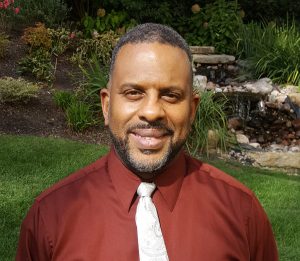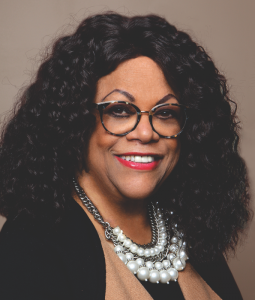Needing medical care is something we all eventually experience. Yet, receiving fair and equal healthcare treatment is not.

Dr. Jason E. Glenn
According to Dr. Jason E. Glenn, associate professor in the department of history and philosophy of medicine at The University of Kansas Medical Center (KU Medical Center), health inequities are most stark in the African American community. “When we go to the doctor, it matters how we dress and talk,” he said. “We have to look like someone whose life is worth saving. We shouldn’t have to worry about it, but that is the reality for a lot of folks.”
Jason, who is also the executive director of the KU Medical Center REPAIR Program, has worked alongside KU leadership to improve equity in healthcare locally. The REPAIR Project began as a student-led initiative in the medical school at the University of California, San Francisco (UCSF). According to Jason, after the murder of George Floyd, universities across the country sought to add anti-racism curriculums to their educational offerings. “As a result of some dialogue between myself and other historians of medicine (at UCSF), who were advisors to students on their REPAIR Project, we got the idea that it could be done here, too,” he said.
The ultimate goal of the REPAIR Project is to improve healthcare outcomes for people of color, and that starts at the university level. At the time, KU faculty were already focused on anti-racism initiatives. Yet, in Jason’s perspective the efforts were disjointed. “We saw the REPAIR framework as a way to unify those efforts and bring them under one coordinated, theoretical framework,” he said.
KU faculty pinpointed four focus areas for their REPAIR Project, aimed at coordinating anti-racism initiatives throughout the institution. The first area of focus is to acknowledge the history of race-based medicine. “It’s the idea that different races are biogenetically different and that disease works differently in those bodies,” Jason said.
The next focus is to update the curriculum, removing race-based teachings and correcting clinical approaches that reinforce stereotyping. One such example is race corrections in which medical professionals consider a patient’s race when determining treatment plans.
A third focus is to address structural racism, helping students understand how healthcare structures and policies impact people’s lives. Effectively putting these three educational focuses into practice requires that teachers understand and faithfully implement the updated curriculum. To accomplish this, KU faculty members attend continuing education to bring them up to speed.
Beyond medical curriculum updates, the final concentration of the REPAIR Project is community accountability. One way KU has addressed this is with an extensive oral history project that began in late 2022. A collection of stories from Kansas City and Wichita highlights first-person accounts of medical harms experienced by people of color. “We interviewed about 100 people in mostly group interviews,” Jason said. “Then we selected 30 of those with the most powerful stories. We are interviewing them one-on-one and videotaping those interviews.”

Dr. Carmaletta Williams
The KU oral history project is a joint collaboration with Kansas City’s Black Archives of Mid-America, where a collection of written and video recorded stories will eventually be housed. Dr. Carmaletta Williams, chief executive officer at the Black Archives, said she believes the oral history is “a wonderful vehicle for truth telling.” She went on to say, “I feel that, inherently, people will not deny the truth when they see and hear these stories. I also hope that what comes of this will be substantive changes made in healthcare.”
By being housed in the Black Archives of Mid-America, diverse groups will be exposed to the oral histories collected by KU. According to Carmaletta, the Black Archives received 16,000 diverse visitors in 2023, spanning races and all ages, from eight to 98. In Jason’s view, housing KU’s oral histories at the Black Archives is an important step to build trust with the greater community. “It was very important to us that the community trusts our institution to not bury those stories,” he said. “We didn’t ask people to be shy about naming the institutions in which they’ve experienced the most harm. There are no institutions in the greater Kansas City area that came out unscathed.”
In addition to the future oral history exhibit at the Black Archives, a report based on those histories will be presented at a Truth and Reconciliation-style event in February of 2025. “We will have our leadership in government, as well as the administration of our local area healthcare centers present,” Jason said. “Community members will present the report – not only outlining the harms that have been done but also their vision of repair.”
In addition to these community accountability initiatives, KU and participants in the oral history project are working together to develop accountability dashboards aggregated by race, ethnicity, and language. “You see specifically where you’re not meeting your targets or where there are inequities in the different populations that you serve,” Jason said. “Ultimately, we want the community to be able to look at the data we’re collecting and really see where inequitable treatment lies.”
Electronic medical record (EMR) data is being used to populate the dashboards for KU primary care clinics, family medicine and internal medicine, and expand from there. Yet, while this information is crucial, it doesn’t paint a complete picture of healthcare inequities. “We realize there are limitations to that data, and what we are pioneering to do is be able to combine the EMR data along with patient satisfaction survey data because we know there are some issues that our community is most concerned about,” Jason said.
Those concerns include feeling respected, feeling listened to, and not feeling stereotyped. According to Jason, dismissive behavior among medical professionals is most apparent in cases of maternal and infant mortality. Unfortunately, some of the oral histories collected were from family members of people who died. “We heard many stories related to black women who were pregnant and could feel something was not right with their pregnancy,” he said. “Or in delivery, they realized something was not right and were completely dismissed by healthcare professionals because they assumed they don’t have the intelligence to know what’s really going on. All the while it may be something like internal bleeding that’s taking place.”
While people of color may shop around for a fair healthcare provider or assert their need to be listened to, various obstacles often hinder their ability to receive proper care. For example, a lack of affordable, quality health insurance might stand in the way. “Sometimes it’s a matter of who’s going to take your insurance and really not having that much of a choice,” Jason said. “If you’ve got really great insurance, then you can go anywhere. A lot of folks don’t have that option.”
Additionally, time is a factor. “How efficiently can people shop around for a provider that they feel extremely comfortable with, particularly when it’s an emergency situation?” he said. “It may take me months to see a new provider in the Kansas City area.”
So how can a person advocate for themselves when these barriers are stacked against them? One suggestion Jason offered is to have what he calls a “healthcare navigator.” “When you take someone else with you who knows a little something, you’ll get treated much better.” he said.
Thanks to initiatives like the REPAIR Project, which Jason said is being adopted across the country, a fair and equal healthcare future may be within our grasp. The next step, according to Jason, is to measure the equity of healthcare providers who have been through the updated training. “Unless it’s actually translating into better outcomes from our patients, then we could just be spinning our wheels, and so we recognize that’s the future work we have to do.”
Featured in the February 10, 2024 issue of The Independent.
By Monica V. Reynolds